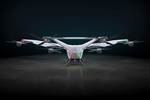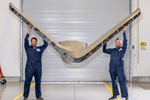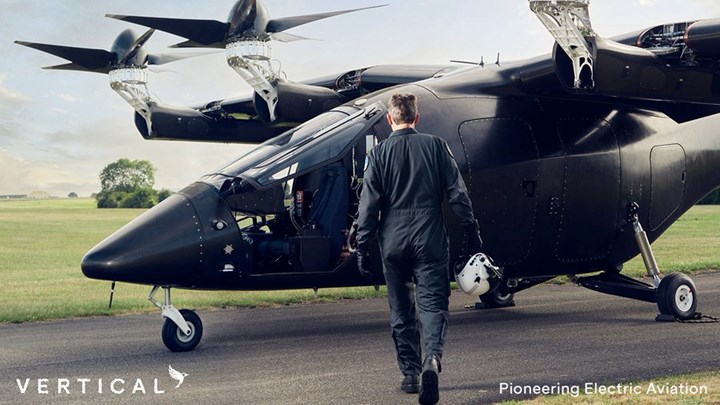Vertical Aerospace conducts successful airborne flight test
British aerospace company celebrates “wheels up” for the first time in a new intensive test program phase, following its CAA permit to fly.
Vertical Aerospace (Bristol, U.K.) saw its composite full-scale VX4 electric vertical takeoff and landing (eVTOL) piloted prototype aircraft take off from the ground for the first time the weekend of Sept. 24-25, 2022. Based on research from aviation historians, it is believed that Vertical Aerospace has become the first British company to begin flight tests with a new aircraft in more than 20 years.
The moment marked a significant milestone as Vertical continues to progress successfully through its intensive flight test program (see “Vertical Aerospace completes VX4 eVTOL build, begins flight test program”), supported by the Aerospace Technology Institute (ATI). The program is expected to continue for several months, completing different stages which will involve reaching higher altitudes and speeds and demonstrating the transition from vertical to horizontal forward flight.
Engineers and flight technicians watched on as chief test pilot, Justin Paines, took to the controls for the aircraft’s maiden takeoff which saw the eight sets of aerodynamic propellers lift the aircraft from the ground at hover-thrust, while tethered to the ground for safety.
According to Paines, “this test represented the culmination of many months preparation by a huge team and being at the controls of the VX4 for the first time was an honor and a proud moment for us all.”
The company, unlike many of its competitors, decided to conduct its first flight tests with a pilot on board to prove it could meet the most stringent safety standards. To do this, Vertical Aerospace received regulatory approval in the form of a “Permit to Fly” from the Civil Aviation Authority (CAA), after demonstrating the test could be conducted safely.
The permit and the positive results of these early tests enable the teams at Vertical to progress on their mission to certify the VX4 by 2025. It is hoped the aircraft will carry a pilot and four passengers and is expected to have a range of up to 100 miles with the ability to cruise at speeds of around 150 miles per hour, with a top speed of 200 miles per hour.
The company has already received more than 1,400 conditional pre-orders from several airlines, operators, lessors and tourist groups including Virgin Atlantic, American Airlines, Japan Airlines and Air Asia and recently announced that American Airlines has conditionally committed to make a pre-payment for its first 50 deliveries of the VX4.
“This moment represents a small step for Vertical Aerospace, but it’s a giant leap forward for British aviation,” Stephen Fitzpatrick, founder and CEO, Vertical, adds.
Related Content
-
Joby demonstrator makes 523-mile hydrogen-electric flight
Hydrogen-electric program builds on technology developed by H2FLY subsidiary, demonstrates potential for emissions-free regional travel using Joby’s all-composite eVTOL aircraft.
-
Alef Aeronautics earns FAA approval to launch flying car
FAA certifies testing of California startup Alef’s all-electric composite vehicle, which is drivable on public roads and has VTOL capabilities.
-
Composites opportunities in eVTOLs
As eVTOL OEMs seek to advance program certification, production scale-up and lightweighting, AAM’s penetration into the composites market is moving on an upward trajectory.
















